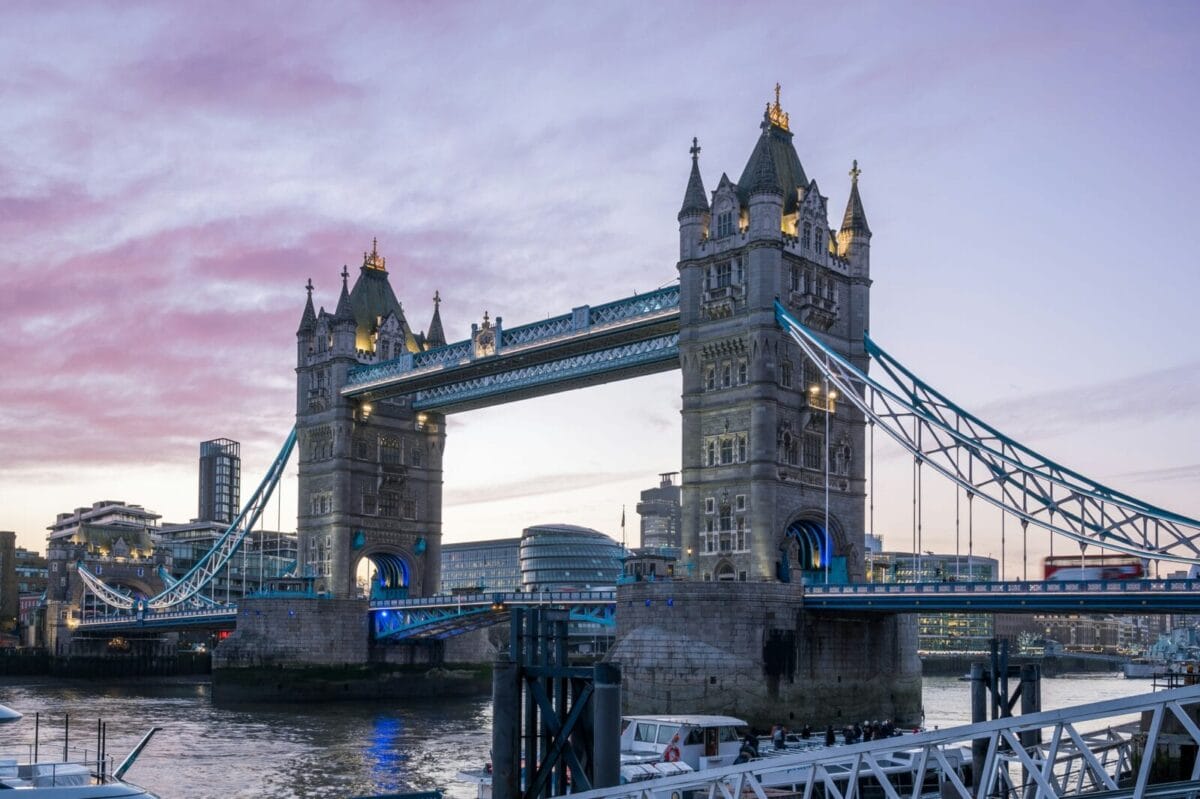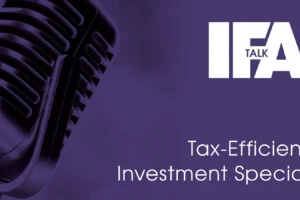Chancellor Rachel Reeves has announced that her second, and highly anticipated, Budget will be delivered on 26 November. Following her inaugural Budget in October 2024—marked by sweeping tax increases amounting to £36 billion annually—Reeves signaled a bold shift in fiscal policy.
AJ Bell head of public policy, Rachel Vahey, says:
“The government has finally announced its all-important second Budget will take place on Wednesday 26 November.
After a turbulent first year in power, it will be focused on stabilising an economy troubled by multiple setbacks and U-turns, putting the government under increasing pressure amid plummeting approval ratings.
The announcement effectively fires the starting gun for the OBR (Office for Budget Responsibility) to complete its assessment of the UK’s financial health, given government plans for taxation and spending.
But the current reading of the economy doesn’t make for good news. Although growth received a slight boost last month, it remains relatively weak. Whereas long-term borrowing is rising fast.
The government has precious few options to turn this picture around. After boxing itself into a corner at the election by promising not to raise rates of income tax, national insurance or VAT for ‘working people’, it has few options to increase taxation. Speculation will be rife in the lead-up to the Budget over what measures it will resort to.”
What could the 2025 Budget bring?
AJ Bell’s team of experts look at some of the policy measures the chancellor may consider ahead of the Budget:
- ISA reform
AJ Bell director of public policy, Tom Selby:
“The government has been clear it wants to encourage a retail investment culture in the UK and get more people investing for the long term rather than stashing their hard-earned savings in cash, but there has been little detail beyond this, short of swirling rumours that the Cash ISA allowance was under threat in the lead-up to Reeves’ second Mansion House speech – before those plans were shelved, at least temporarily. The Budget will likely prove to be the platform where the chancellor puts some meat on the bones of this agenda.
AJ Bell has long campaigned for simplification of ISAs, a straightforward and zero cost reform which would make it easier for people to navigate what has become an unnecessarily complex landscape.
Combining Cash ISAs and Stocks and Shares ISAs into a single main ISA product would be the obvious starting point. The current structure, which requires people to choose between a cash product or an investing product, is illogical and behavioural research commissioned by AJ Bell supports our contention this risks acting as a barrier to people moving into long-term investing.
The fact only 16% of ISA holders hold both a Cash ISA and a Stocks and Shares ISA in conjunction suggests the current regime could be improved, and we estimate at least £100 billion of money held in Cash ISAs could be put to work investing for the long term. If the government wants to help more people invest, removing the unnecessary friction that exists in the system and enabling more useful guidance through targeted support would be a solid foundation.
This package of reforms would be easier to introduce both practically and politically than cuts to Cash ISA allowances, or forcing more money into UK companies. Given over 40% of ISA funds held by AJ Bell customers are invested in the UK, creating an environment where more people invest through ISAs should naturally boost capital flows to UK plc and in turn help boost the wider economy in the process.”
- Tax free cash, pension tax relief and the case for a Pensions Tax Lock
AJ Bell director of public policy, Tom Selby:
“The chancellor has put people’s pensions at the heart of her economic plans with the so-called ‘Mansion House’ reforms. While the government claims this is about delivering better returns for members, corralling more money into private equity investments clearly comes with substantial risks for savers. Given the drive to take risks with other people’s money, the least Brits should expect is for the government to provide a bit of stability to the pensions rules so they can plan for the future with confidence.
Every Budget is preceded by feverish speculation about possible tax changes, including to pensions tax-free cash and tax relief. At the last Budget, this reached a new level and clearly affected people’s choices, with many rushing to get their tax-free cash or hiking contributions because they feared these benefits could be taken away.
This level of uncertainty causes untold damage to people’s confidence in retirement saving. Rather than letting this speculation run wild again, the chancellor should back those who do the right thing and save for retirement by committing to a ‘Pensions Tax Lock’ – a pledge not to change tax relief or tax-free cash, at least for the rest of this Parliament. This would at a stroke remove a significant area of instability for savers and demonstrate this government is truly on the side of hard-working Brits.”
For further information on pension taxation, see background below on the challenges of reforming tax relief or tax-free cash.
- Applying national insurance to retirement incomes
AJ Bell director of public policy, Tom Selby:
“Given the pledges made by the prime minister and the chancellor not to hike NI rates, income tax rates or VAT and protect the incomes of ‘working people’, options to raise significant amounts of cash are pretty thin on the ground. Reeves could technically argue that applying national insurance to retirement incomes does not increase taxes on working people, although it is hard to imagine she would go down a road that hits pensioners and would leave her open to accusations of breaking her NI promise.”
- Inheritance tax
AJ Bell director of public policy, Tom Selby:
“The government has already announced IHT raids on farmers and pensions, so another attack at the Budget would represent an unwelcome hat-trick for anyone prioritising passing wealth onto their loved ones when they die. The fiscal situation the chancellor finds herself in is precarious to say the least, with some estimates suggesting she needs to find £50 billion to get the nation’s finances back in line with her ‘iron clad’ fiscal rules. Having ruled out changes to employee income tax, National Insurance and VAT, IHT is perhaps viewed as one of the few revenue raising levers available which wouldn’t undermine economic growth or spark a backlash from public sector workers.
“If Rachel Reeves wants to target inheritances again, the simplest way to do this would be to either reduce IHT thresholds or extend the ‘seven-year rule’ that applies to lifetime gifts. Given the freezing of IHT thresholds will naturally raise more cash for the Exchequer over time through fiscal drag anyway, a shift in gifting rules might be a viewed as a politically more palatable option. But IHT remains one of the most hated taxes in Britain, so any move in this area will inevitably come at some political cost.”
- Capital gains tax
AJ Bell head of investment analysis, Laith Khalaf:
“Rachel Reeves may have unfinished business with capital gains tax (CGT). Having pushed rates up a bit in the last Budget, the chancellor may be tempted to engage in a more full-blooded attack on asset gains to drive some much-needed revenue for the Exchequer. Equalising capital gains tax rates with income rates has been widely touted for a while, and may lead the OBR to forecast a few extra quid coming into the Treasury as asset prices rise.
“By announcing the tax ahead of its implementation, the chancellor can almost certainly boost short term tax receipts as investors crystallise gains before higher rates of tax come in. However, there is some doubt over whether raising capital gains tax is good for tax revenues in the long term. Higher rates of CGT will encourage more people to shift money to assets where they don’t pay it, like ISAs, gilts, and primary residences. It also discourages entrepreneurship and investment in productive assets, something which cuts across the chancellor’s plans to boost economic growth and the UK stock exchange.
“Capital gains tax also doesn’t currently apply on death, so higher rates will probably mean more people holding onto assets into their old age when they might otherwise sell them and pass them on to the next generation. Of course, it’s possible Reeves might choose to close that loophole too, but after increasing inheritance tax on pensions and farms, that might be a death tax too far. Much will depend on how much money Reeves needs to find to balance the books. It may be she simply has to pick the least worst options from an unappetizing menu.”
- Frozen thresholds
AJ Bell head of investment analysis, Laith Khalaf:
“We’re so used to frozen income tax bands now, the public might well have forgotten what it’s like for these to rise in line with inflation. Currently tax thresholds are frozen until 2028, but the chancellor could choose to extend the freeze to make her sums add up. This would be a reverse ferret of mammoth proportions.
“The chancellor might tenuously be able to claim this doesn’t break Labour’s election pledge not to raise income tax, were it not for the fact that at the 2024 Budget she rather boastfully declared she wouldn’t freeze personal income tax and National Insurance thresholds, because she believed it would hurt working people. It’s one of the few bits of detail of what actually constitutes a tax on working people that we have had from the Labour party, and so a continuation of frozen thresholds would surely be too much of a climbdown for the chancellor to bear.”
- Wealth tax
AJ Bell head of investment analysis, Laith Khalaf:
“As things have looked increasingly tight on the fiscal side of things, partly a result of Labour U-turns on winter fuel allowance and welfare spending, the idea of a wealth tax has reared its head, and has been given some oxygen by former Labour leader Neil Kinnock. More than 30 sitting MPs have now signed an Early Day Motion calling for a 2% wealth tax on those with assets above £10 million, many of them on the Labour benches. On the face of it a wealth tax is an appealing idea. It targets a small group of very wealthy individuals for whom paying a bit more tax won’t mean hardship, but as ever, the devil lies in the detail.
“Part of the problem rests in which assets to include. Family homes, pensions and private businesses aren’t always easy to value, and can’t easily be turned into cash to pay taxes. However, excluding certain assets from a wealth tax clearly creates a loophole and a strong incentive to store wealth in anything that’s not subject to the tax. A wealth tax may also be counter-productive by encouraging rich individuals to relocate elsewhere, taking their tax revenues and economic contribution with them. With a large portion of the tax falling on a small number of extremely wealthy individuals, it only takes a few tax whales to up sticks and leave for the taxman to be denied a feast of blubber.
“Questions of fairness also arise. Wealth that’s been accumulated may well have been already subjected to income tax, capital gains tax, inheritance tax, or a combination of all three, so adding a wealth tax creates a state of double taxation. Meanwhile some couples will have their financial affairs arranged so that the lion’s share of the wealth sits in the name of one individual, even though it supports both of them. Other wealthy individuals with close-knit and sizeable families may be able to split their assets up to avoid or mitigate the tax.
“While it would only likely affect a small group of people, a wealth tax would likely be a controversial measure, not least because those caught up by it probably wield a disproportionate amount of influence as well as money. It’s also an odd choice for a government that is trying to promote wealth creation in the UK to bolster the economy, while adding a further layer of complexity to an already inscrutable tax system. But perhaps desperate times call for desperate measures.”
- ‘Mansion tax’ or other high-value property tax
AJ Bell head of investment analysis, Laith Khalaf:
“As things stand it’s purely speculation as to whether there will be any reform to property taxes. One of the possible options which has been rumoured is an annual property tax for properties over £500,000, which would ultimately replace stamp duty. In the case of a family inheriting a property that would presumably not exempt them from any inheritance tax that might be due, however it seems likely they would only then pay the annual property tax if they continued to own the property, rather than simply selling it and distributing the cash amongst the beneficiaries.
“However, there are no details of what the tax charge may be or whether it will come to pass. Tax reform would be a laudable aim for Rachel Reeves to pursue, but it may also prove challenging while raising tax revenues at the same time, both politically and financially. Property taxes in particular are highly emotive and likely to elicit a strong reaction amongst voters if they are seen to be on the up.
“A ‘mansion tax’, for instance, would likely be hugely unpopular even if it is set at a high enough level to preclude most taxpayers from paying it. Ever since capital gains tax was introduced, gains on the home you live in have been exempt. The tax-free nature of your primary residence is deeply embedded in the psyche of homeowners. A mansion tax set at high level would naturally cause people to worry it was just the thin end of the wedge, and the next time the government needs a bit of money they could just lower the threshold. It would also be an impediment to mobility in the housing market, as those with properties which might fall foul of the tax would be inclined to sit on them for longer, leaving a log jam in the housing ladder below them.
“Homeowners would also need to keep records of the costs of improvements they made to properties in order to offset them against any capital gains tax. That would be the case even for those with properties under the threshold, if one day those houses may grow in value enough to be drawn into taxation. Questions of fairness would also be raised by a mansion tax. Those living in property hotspots such as London and the South East would be more likely to find themselves above the threshold compared to those living in similarly sized homes in the rest of the UK.
“And while the value of the property you live in is clearly an indication of wealth, it is by no means a conclusive one. Someone who has saved all their wealth into their home may have a more expensive house than someone who has taken a more diversified approach including cash, pensions and investments, but their total wealth may still be significantly less. It would be hugely surprising if Reeves presses ahead with a mansion tax given the public outcry it would likely provoke. Then again, much will depend on just how bad the public finances are when the numbers are totted up in the autumn.”
- Sin taxes
AJ Bell head of financial analysis, Danni Hewson:
“There are very few mooted tax increases that are likely to go down as well with the public as an increase in gambling duties, especially if the cash raised were committed to helping alleviate child poverty.
“Taxing gambling companies a bit more on the mega profits they make might look like an easy win for a cash strapped government facing alienating everyone from the mega rich to baby boomers with properties that have mushroomed in value. But the increases floated by think tank the IPPR are significant and, whilst gambling companies have in the past been able to maintain profits by passing most of the increase of previous tax raids onto gamblers themselves, this increase might prove more difficult.
“There comes a point when tinkering with odds alienates customers, potentially pushing them towards black market options, and that could substantially shrink the anticipated windfall.
“With speculation that gambling taxation could be “simplified” there are big questions about whether remote gambling and gambling at sporting events like horse races might be tied together. The latter has struggled to keep racegoers attending events and increased betting costs or less favourable odds could further impact the allure of horse racing.
“There’s also the potential impact on sports sponsorship which plays a massive part in maintaining the UKs rich schedule of events.
“The gambling sector might appear a “soft” target but it pays millions towards research and treatment for problem gambling and supports those sporting events that in turn provide it with betting opportunities.There’s a concern that the huge tax increases being mooted could end up cutting too deeply with unintended and potentially unseen consequences.”
- Bank tax
AJ Bell head of financial analysis, Danni Hewson:
“Shares in UK banks including Lloyds and NatWest have taken a hit in recent weeks as rumours have surfaced suggesting government may look to the banks to bolster tax revenues, fuelled by proposals from think-tank IPPR.
“In the hunt for extra cash it is no surprise the Treasury are looking at a wide range of options and the government will likely feel that asking banks to contribute more is a measure that exhausts little or no political capital.
“The issue is whether taxing the banks more will end up stifling the very growth the government is keen to foster, by crimping lending to businesses and households alike. The banking system greases the wheels of the economic engine, which could stall if heavier taxation means less lending.
“The banks will undoubtedly argue as such, and shareholders may not want to see any such raid either. The wider public may see it differently, given how HSBC, Barclays, NatWest and Lloyds are expected to earn some £44 billion between them worldwide in 2025, their third-best year ever, after 2023 and 2024.”
Background: the challenges of reforming tax relief or tax-free cash
Further restrictions to pensions tax-free cash?
Currently, most people can take up to 25% of their fund from age 55 tax-free, with this minimum access age due to rise to 57 in 2028. The amount of tax-free cash most savers can take over their lifetime is capped at £268,275. Reeves could, in theory, lower the amount of tax-free cash Brits are entitled to – or even abolish the entitlement altogether.
However, this would be deeply unpopular and fundamentally undermine wider government efforts to boost long-term investing, including in UK plc. It would also inevitably be hugely complicated, as those who have already built-up entitlements to tax-free cash under the existing rules would almost certainly need to be protected against a retrospective retirement tax. Furthermore, the overall amount people can access tax-free has already been scaled back significantly over the last 15 years, and if the current figure remains frozen, it will continue to be eroded in real terms.
All of which means that any immediate threat to tax-free cash feels fairly remote. Crucially, savers should deal with the tax rules as they find them today, rather than reacting to any rumour and speculation that surfaces.
Pension tax relief raid?
The potential for a raid on retirement savings incentives is another rumour that usually does the rounds before a Budget. As things stand, contributions to pensions benefit from tax relief at your ‘marginal rate’, meaning basic rate taxpayers get 20%, higher-rate taxpayers 40% and additional-rate taxpayers 45%. To limit the cost of tax relief to the Exchequer, most people have an annual allowance of £60,000, although those who have flexibly accessed their pension and very high earners have a lower allowance. In addition, there are limits on the lump sums people can pass on from their pensions to their nominated beneficiaries when they die.
The most common pre-Budget pension tax relief speculation centres around the future of higher-rate pension relief and the potential to introduce a flat rate of pension tax relief. At the more extreme end, this measure could see pension tax relief restricted to the basic rate of 20% for all, with advocates suggesting this could raise billions of pounds of extra revenue for the Treasury.
However, as with most radical pension tax proposals, introducing a flat rate of relief is much easier said than done. A huge chunk of any potential savings to the Treasury from a pension tax relief raid would come from defined benefit (DB) schemes, the majority of which now reside in the public sector.
If a flat rate of pension tax relief below 40% were applied on these schemes, the only way to ensure the correct level of tax relief was applied to contributions from higher and additional-rate taxpayers would be to hit those members with a tax charge likely running into thousands of pounds. This would therefore risk opening up a yet another blistering row with NHS staff and civil servants at a time when many public services are already stretched to breaking point.
Reducing the upfront incentive for people to save in a pension would also run counter to wider government efforts to boost long-term investing and risk undermining the flagship automatic enrolment reforms. In addition, younger people who are less likely to have benefitted from higher-rate tax relief may feel understandably aggrieved that a benefit offered to the previous generation has been ripped away from them.
Having sensibly ruled out reintroducing the lifetime allowance, there remains the possibility that the annual allowance could be tinkered with to raise some much-needed cash. But again, this would sit uncomfortably with the broader investing agenda and rub up against this government’s overarching mission of delivering stability. It would also be vehemently opposed by public sector workers, including doctors in the NHS.















